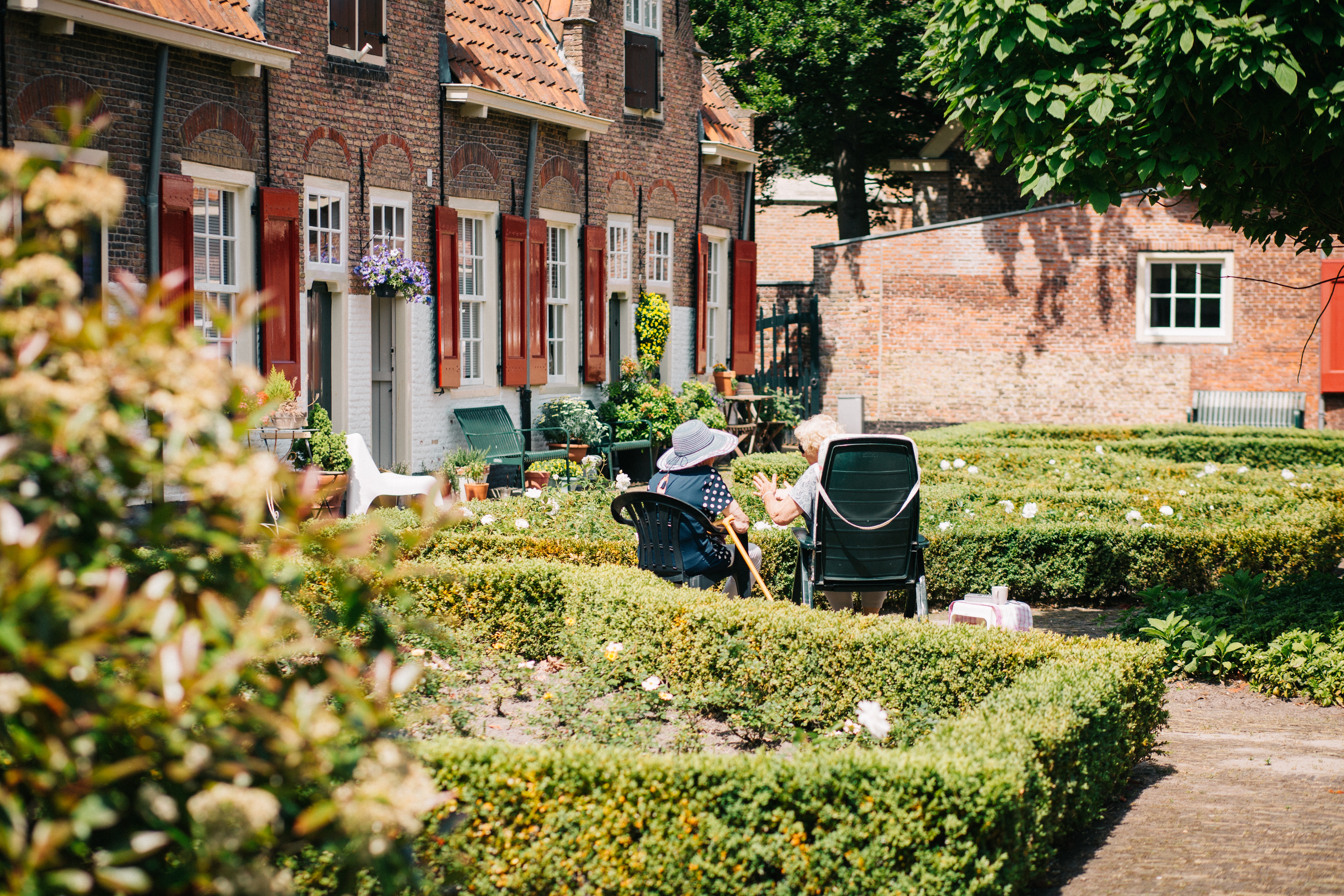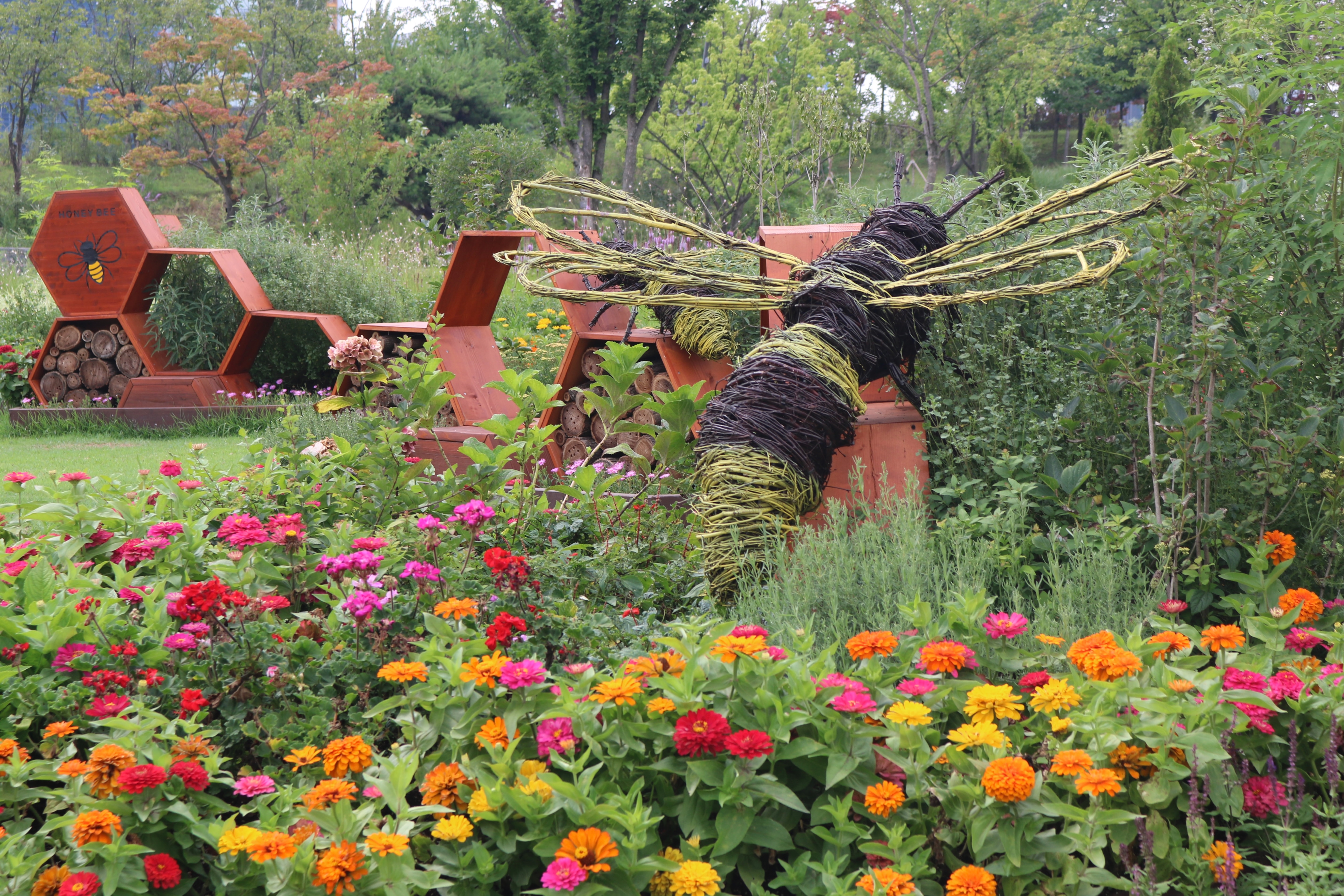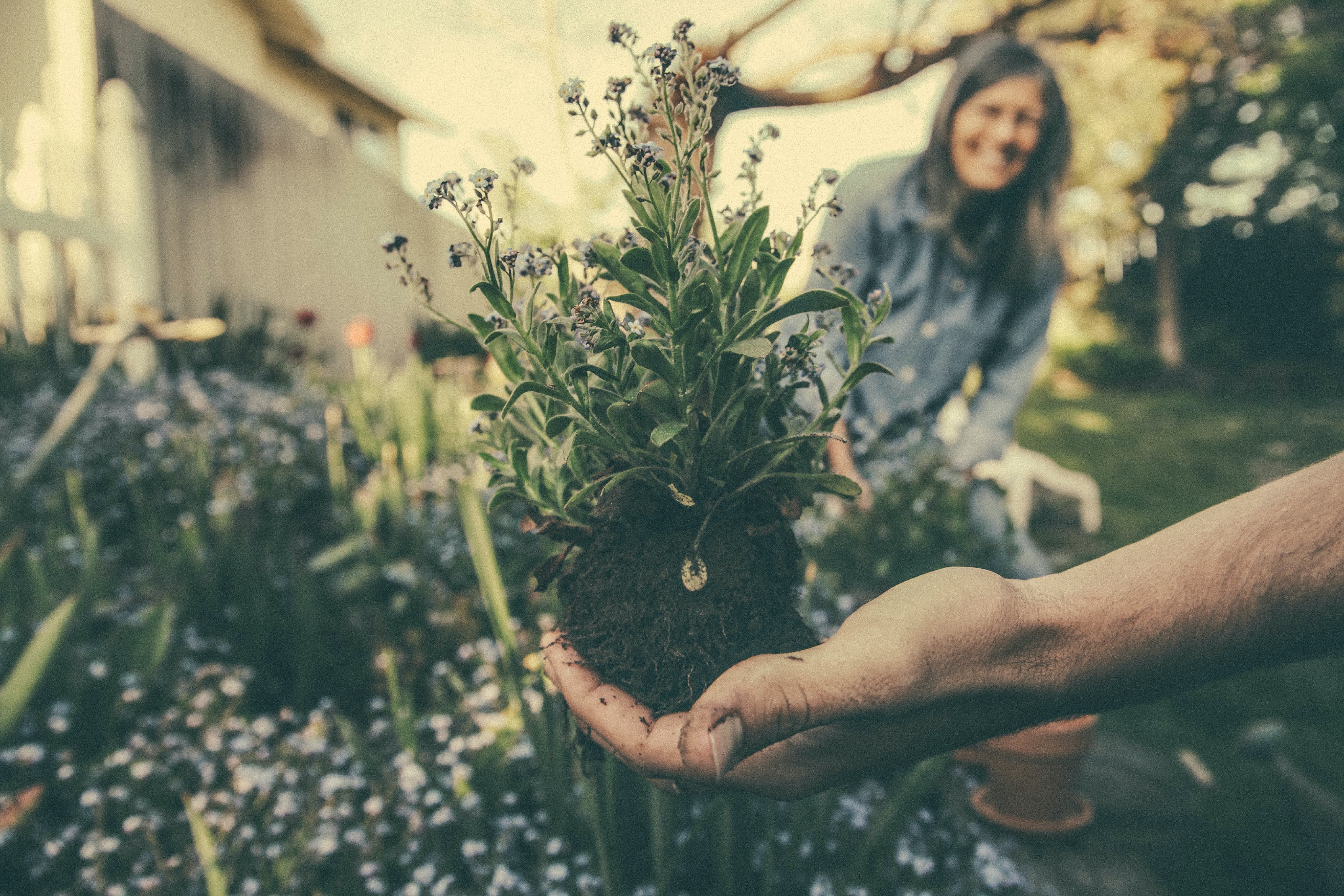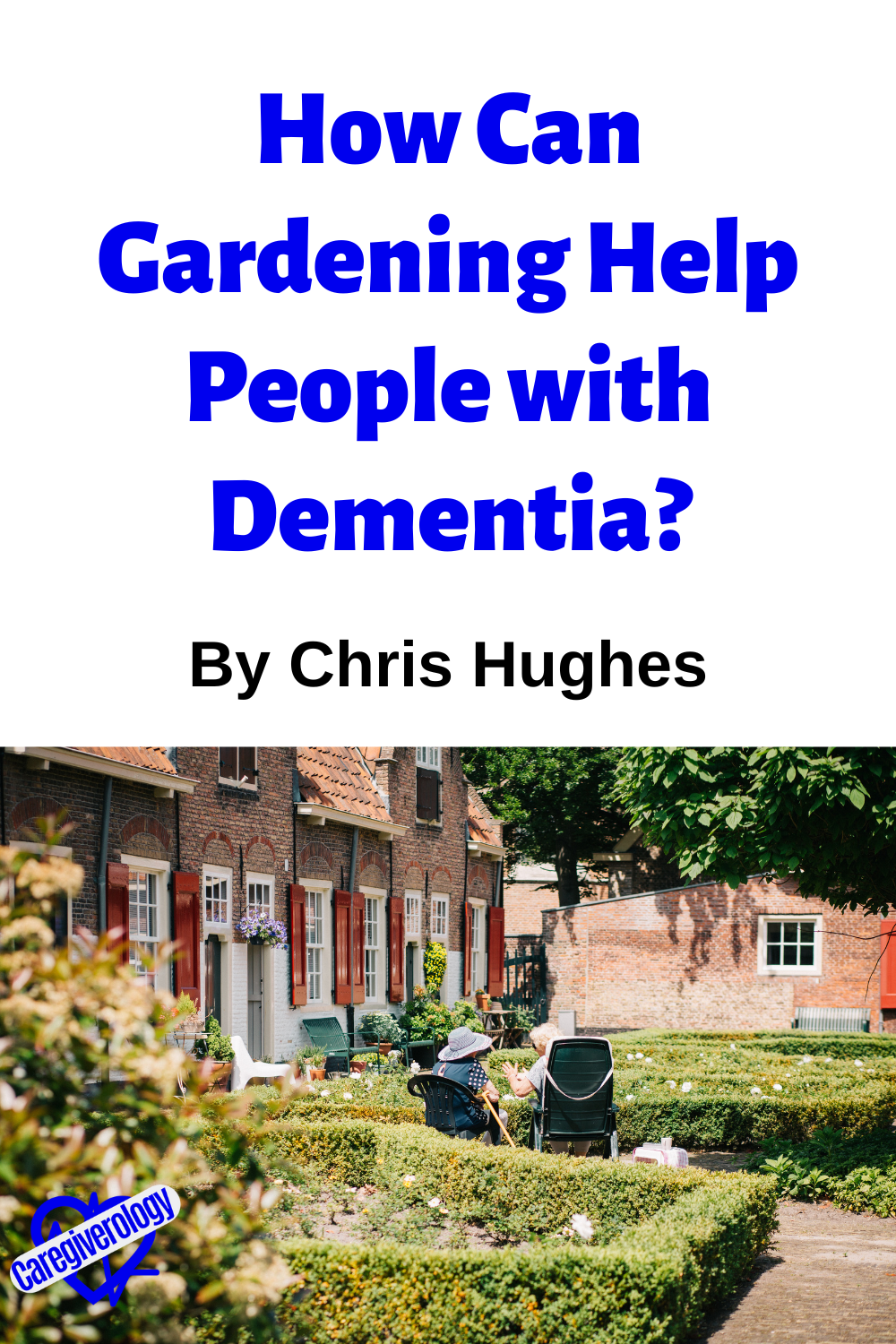How Can Gardening Help People with Dementia?
Gardening can support the physical and emotional wellbeing of adults at any age, but for people with dementia it can have particularly profound benefits. Here are five ways that gardening can be beneficial for people with dementia.

1. Spending time outdoors can boost mood
There is lots of evidence that suggests simply spending more time outdoors can have a positive impact on our mood and overall wellbeing. In fact, 82% of adults report that being in nature makes them very happy. Further, people who garden everyday have 6.6% higher wellbeing rates and 4.2% lower stress levels than people who don't. It's clear that getting outdoors and gardening has a positive impact on mood which is incredibly important for people with dementia who are susceptible to depression.
2. Gardening is a gentle form of exercise
Being physically active is important for people with dementia. Exercise helps to reduce the risk of mobility problems and muscle weakness, both of which are common complications of inactivity. It can also reduce stress and depression and promote good sleep.
Despite the clear benefits, less than 20% of over-65s get enough physical activity and those with dementia are even less likely to engage in exercise. A gentle and enjoyable form of exercise like gardening is a great way to help people with dementia get more active. It can also improve dexterity in their hands which can help them maintain their independence for as long as possible.

3. Gardens are multisensory havens
Sensory stimulation can help people with dementia to relax, feel positive feelings, connect with people, and reminisce. Gardening can serve as an excellent sensory tool because it's a hands-on activity that can stimulate all the senses. Dementia patients can take in the colors, shapes, textures, aromas, and sounds of a garden as they work. They also have an opportunity to stimulate their sense of taste if there are herbs and vegetables in the garden.
4. Plants and flowers can be a tool for reminiscence
When a person with dementia spends time in the garden, they may find themselves remembering other outdoor spaces they've previously enjoyed and stories associated with them. Reminiscence is a very uplifting experience for dementia sufferers because it can trigger positive feelings associated with happy memories. It can also make them feel more competent and confident as they successfully recount a story and share something with their caregivers.

5. Gardening can boost social interaction
Unfortunately, it’s common for people living with dementia to feel lonely. This could be due to many factors, including loss of confidence following their diagnosis, fear of getting lost or confused if they embark on social activity, and not remembering social contact despite it happening. Gardening in a group setting, such as at an allotment or in the garden of a residential home with fellow residents, can be a very positive social experience for people with dementia, helping to reduce feelings of isolation.
Gardening is a wonderful activity for dementia patients
There are many ways that gardening can support the emotional and physical wellbeing of people with dementia. By supporting dementia patients to spend time gardening, we can help them feel happier, more confident, and less lonely.
Author: Chris Hughes
Chris is a landscape gardener who has lots of experience working with different types of outdoor spaces. He enjoys sharing his passion for gardening and encouraging people to experience the benefits of it for themselves.
Guest Articles Written for Caregiverology
From How Can Gardening Help People with Dementia? to Home
Recent Articles
-
How to Plan for Aging: Financial, Health, and Lifestyle Considerations
Mar 29, 25 12:40 PM
Did you know that 70% of people over 65 will need some form of long-term care? Yet, many delay planning until it’s too late. Aging is inevitable, but how we experience it depends on preparation. -
Speech Disorders: How to Know When It's Time to See a Professional
Mar 27, 25 07:05 AM
When it comes to human interaction, we need to be able to communicate effectively. -
Who Provides What? The Distinct Duties of Nurses and Caregivers
Mar 26, 25 07:37 PM
When it comes to healthcare, the roles of nurses and caregivers are often misunderstood. While both are essential in providing support and care, their responsibilities, training, and the level of care…





New! Comments
Have something to say about what you just read? Leave a comment in the box below.